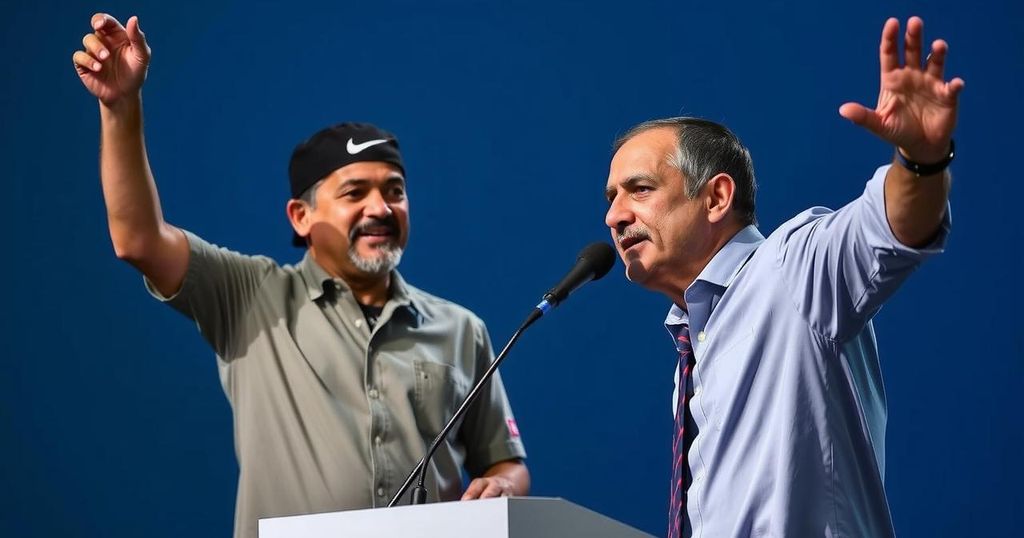Uruguay’s Governing Party Concedes to Left-Wing Challenger, Signaling Political Shift
The governing party in Uruguay conceded defeat in the presidential run-off to left-wing candidate Yamandu Orsi, marking the end of five years of conservative rule. Alvaro Delgado acknowledged Orsi as the winner, as preliminary votes indicated Orsi’s lead. The election reflects a global trend of public discontent with incumbent governments amid economic challenges post-pandemic.
In a significant political development in Uruguay, the governing coalition conceded defeat in the presidential run-off election held on Sunday. Alvaro Delgado, the candidate from the centre-right National Party, announced his concession with a tone of sadness but expressed no guilt, congratulating his opponent, Yamandu Orsi, from the centre-left Broad Front. With over 57% of the votes counted, Orsi’s lead set the stage for his assumption of the presidency, effectively marking the end of the conservative government that came to power in 2020.
Yamandu Orsi, a former history teacher and mayor, garnered approximately 49% of the votes according to independent quick counts, leading Delgado’s 46%. The high voter turnout of 89.4% reflected the compulsory voting system in Uruguay, which saw over 2.7 million citizens participate. Orsi’s victory is notable in the context of a broader global trend where voters are expressing their discontent with incumbent governments during a challenging post-pandemic economic landscape.
Despite his affiliation with the left, Orsi is considered a moderate and shares some policy agreements with his conservative rival, particularly regarding tackling childhood poverty and organized crime. His administration is expected to maintain a blend of market-oriented policies coupled with social welfare programs, reminiscent of the Broad Front’s previous governance. As he prepares to lead, Orsi’s platform includes tax incentives aimed at stimulating investment and reformed social security measures, though he is not advocating for a complete overhaul sought by unions in Uruguay.
As a reflection of public sentiment, a nurse expressed her support for Orsi, highlighting aspirations for improved working conditions and living standards for future generations. This electoral outcome signifies a crucial shift in Uruguay’s political landscape, reinstating the Broad Front’s leadership after a hiatus marked by conservative governance.
The recent presidential run-off election in Uruguay serves as a pivotal moment in the country’s political history. Since the election of Luis Lacalle Pou in 2020, Uruguay had been governed by a conservative-leaning coalition that interrupted a 15-year period of rule by the Broad Front, known for their progressive policies. This current political transition highlights a growing trend of voter dissatisfaction with incumbents globally, as populations respond to economic challenges exacerbated by the pandemic. The Broad Front’s prior administration was noted for significant social reforms, including the legalization of abortion and same-sex marriage, which have shaped modern Uruguayan society.
In conclusion, Yamandu Orsi’s election marks a substantial change in Uruguay’s governance, transitioning from a conservative regime back to a leftist leadership after a brief interlude. While his platform aligns with some progressive ideals, it also reflects moderate approaches to economic and social issues. The high voter turnout signifies an engaged electorate, eager for change and responsive to the current economic climate. As Orsi prepares for his presidency, the implications of this election will be closely watched domestically and internationally.
Original Source: www.expressandstar.com




Post Comment